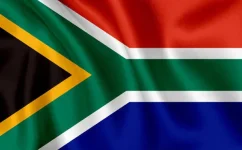The 2025 budget has hit average South Africans hard. The government plans to raise the value-added tax (VAT) rate, adding an extra R18 billion tax burden on incomes. They canceled all inflation adjustments that were originally planned, even for people with low incomes. Medical credits won't increase with inflation either. Taxes on alcohol and tobacco will jump higher than inflation rates.
These tax changes aim to collect R28 billion more in 2025/26 and R44.1 billion more the following year. Despite strong public opposition, Finance Minister Enoch Godongwana increased VAT by 0.5 percent starting May 1 this year. Another 0.5 percent increase will happen in 2026. The government expects to collect R13.5 billion from the first VAT hike and R15.5 billion from the second one.
Aneria Bouwer from Bowmans thinks these collection goals might not happen because people already pay high taxes. The South African Revenue Service seems aware that raising tax rates doesn't always lead to more money collected. Bouwer points out that primary and secondary rebates weren't adjusted for inflation. The interest income exemption has stayed the same since 2013 - R23,800 for people under 65 and R34,500 for those 65 and older.
The government believes wealthier households will shoulder most of the burden. Gerhard Badenhorst from Cliffe Dekker Hofmeyr notes that Godongwana stated that 75 percent of VAT comes from high-income homes. But this overlooks how poor and low-income families spend more of their available money on Vat, making them feel the increase more strongly than rich households.
VAT collections through March 31 should reach R460 billion, almost 25 percent of all tax money. Badenhorst adds that only time will tell if the new 0.5 percent increase raises this percentage. The minister tried to justify the increase by comparing South Africa's 15 percent rate to peer countries, which average 19 percent.
Badenhorst cautions against looking at VAT rates alone. Botswana has 14 percent VAT but doesn't tax primary healthcare or education. Their corporate tax rate is 22 percent compared to South Africa's 27 percent, and their maximum personal income tax is 25 percent compared to South Africa's 45 percent. Scandinavian countries charge 25 percent VAT but exempt almost everything from taxes.
These countries made policy choices to shift from direct taxes to consumption taxes, explaining their high VAT rates. Badenhorst warns against concluding that South Africa's VAT rate seems low based on simple comparisons. South Africans will feel additional pain when buying tobacco and alcohol. Cigarette prices jump 4.75 percent, and alcohol products rise 6.75 percent.
Tax Justice SA claims these increases make life harder for honest citizens and benefit criminals. Instead of addressing illegal trade that already costs R100 billion yearly in lost taxes, the government punishes law-abiding businesses and consumers. TJSA founder Yusuf Abramjee says Godongwana ignored reality by choosing actions that will worsen South Africa's economic problems.
The VAT and sin tax increases won't generate the revenue the government hopes for. They'll only help illegal traders who operate freely as honest businesses struggle. Abramjee asks why the government quickly squeezes honest taxpayers but moves slowly against illicit trade leaders.
These tax changes aim to collect R28 billion more in 2025/26 and R44.1 billion more the following year. Despite strong public opposition, Finance Minister Enoch Godongwana increased VAT by 0.5 percent starting May 1 this year. Another 0.5 percent increase will happen in 2026. The government expects to collect R13.5 billion from the first VAT hike and R15.5 billion from the second one.
Aneria Bouwer from Bowmans thinks these collection goals might not happen because people already pay high taxes. The South African Revenue Service seems aware that raising tax rates doesn't always lead to more money collected. Bouwer points out that primary and secondary rebates weren't adjusted for inflation. The interest income exemption has stayed the same since 2013 - R23,800 for people under 65 and R34,500 for those 65 and older.
The government believes wealthier households will shoulder most of the burden. Gerhard Badenhorst from Cliffe Dekker Hofmeyr notes that Godongwana stated that 75 percent of VAT comes from high-income homes. But this overlooks how poor and low-income families spend more of their available money on Vat, making them feel the increase more strongly than rich households.
VAT collections through March 31 should reach R460 billion, almost 25 percent of all tax money. Badenhorst adds that only time will tell if the new 0.5 percent increase raises this percentage. The minister tried to justify the increase by comparing South Africa's 15 percent rate to peer countries, which average 19 percent.
Badenhorst cautions against looking at VAT rates alone. Botswana has 14 percent VAT but doesn't tax primary healthcare or education. Their corporate tax rate is 22 percent compared to South Africa's 27 percent, and their maximum personal income tax is 25 percent compared to South Africa's 45 percent. Scandinavian countries charge 25 percent VAT but exempt almost everything from taxes.
These countries made policy choices to shift from direct taxes to consumption taxes, explaining their high VAT rates. Badenhorst warns against concluding that South Africa's VAT rate seems low based on simple comparisons. South Africans will feel additional pain when buying tobacco and alcohol. Cigarette prices jump 4.75 percent, and alcohol products rise 6.75 percent.
Tax Justice SA claims these increases make life harder for honest citizens and benefit criminals. Instead of addressing illegal trade that already costs R100 billion yearly in lost taxes, the government punishes law-abiding businesses and consumers. TJSA founder Yusuf Abramjee says Godongwana ignored reality by choosing actions that will worsen South Africa's economic problems.
The VAT and sin tax increases won't generate the revenue the government hopes for. They'll only help illegal traders who operate freely as honest businesses struggle. Abramjee asks why the government quickly squeezes honest taxpayers but moves slowly against illicit trade leaders.












